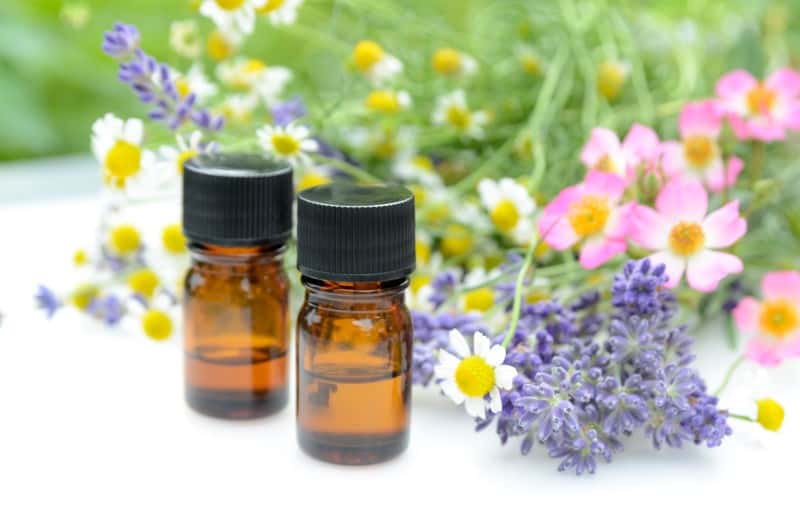Essential oils are labeled as a natural product, and because of this, people often associate them with being a weak substance. However, this is far from the truth. Pure essential oils are so corrosive that they cannot even be kept in plastic bottles or containers as they will eventually break down the plastic.
Essential oils do break down plastic. Pure essential oils are incredibly strong and contain properties that will break down most plastic over extended periods of time. Diluted essential oils can be stored in plastic for a short period of time without it breaking the plastic down.
Pure essential oils are safe and an all-natural product; however, they are still a surprisingly strong and very concentrated substance. Let us look at how pure essential oils can affect plastic.

Can Essential Oils Break Down Plastic?
Essential oils are well known for being a natural remedy for many ailments and injuries as they are usually made of pure concentrated plant oils that hold healing properties.
Since they are made purely from plants, people are usually shocked to find that pure essential oils can break down most plastic. Pure essential oils (essential oils that have not been diluted by a carrier oil, such as coconut oil) should generally only be stored in a glass or metal container, as when they are left in plastic, the essential oil can start to slowly break down the plastic that it is left in.
This is not only bad because the plastic will contaminate the essential oil, leaving it full of old and broken down plastic and chemicals, which will render the oils useless, but it will also eventually break the plastic bottle or container to the point where there will be holes in it, meaning that the essential oil will start to leak through whatever container or bottle it was in.
Not only will this leave you with a broken container, but you will also lose all of the oil that you were storing and using.
What Plastics Do Essential Oils Break Down
There is only a hand full of types of plastics that pure essential oils may not have an effect on since most types of plastic will be broken down by essential oils when they are exposed to them for long periods of time.
For example, when polystyrene (which is also known as plastic number 6) is exposed to lemon oil, the breaking down of that type of plastic will begin almost immediately.
Although this is not the best example as not many people use polystyrene as a long term storage solution, it is simply to explain that certain plastics will even start to break down right away when in constant contact with essential oils.
Not all plastics have to be exposed to essential oils for long periods of time for this reaction to take place; sometimes, this reaction can happen within hours.
What Plastic Will Essential Oils Not Break Down?
Many people have had to learn the hard way that essential oils and plastic do not mix well together.
It may not be clearly visible or even noticeable at all in the first few days, or even in the first week or two depending on the plastic you are using, but there will eventually be obvious signs of this reaction taking place, and you will begin to see a difference in the appearance of the bottle’s shape when the essential oil starts breaking down the plastic.
The plastic bottle that the essential oil is being kept in will begin to warp and change its shape. It will often begin to cave in on one or both sides, and eventually, a hole will be formed.
However, there are two types of plastics that essential oils can be stored in for relatively long periods of time without these plastics being broken down.
There is P.E.T., also known as plastic number 1, and then there is HDPE, which is also commonly known as plastic number 2.
P.E.T. plastic is a food-safe, BPA-free plastic that has become one of the most popular plastics to use for food and drink storage. It should then be of little surprise that this is one of the only plastics that can store essential oils with little to no damage being caused to it.
HDPE is a high-quality plastic that has strong bonds and is not easily broken down by essential oils. This plastic is therefore often used to make the lids that are used on the glass bottles that essential oils are stored in.
HDPE plastic is also the most often used plastic in products that are made to be used with essential oils, such as an air diffuser, to prevent any damage to the product. Any plastic parts that would need to come in to contact with the essential oil in these products will then be made of HDPE plastic.
These two types of plastic are strong enough and stable enough, and they are made of strong enough materials that can be used in the storage of essential oils safely.
Even though these plastics could hypothetically be used as the bottle itself in which essential oils are kept, they are generally still only used in the lids and smaller mechanisms of the bottle, such as the dripper, as glass is still overall a better material to store your essential oils in.
This is because there is no risk of breakdown or corrosion of the glass bottle due to the essential oils, making it the safer choice for essential oil storage.
However, if you have made up your mind and you are absolutely set on using a plastic bottle or container to store your essential oils in, there is a way you can do this with a lower risk of the plastic being broken down.
You can dilute your essential oils using a carrier oil. A carrier oil, or base oil, is an oil that is added to an essential oil in order to dilute it before it is used on your skin, as some essential oils are too strong to add to your skin alone as they may burn or irritate the skin.
So a carrier oil, usually made of coconut or vegetable oils, is added to “thin out” the essential oil. You can add a carrier oil to your essential oils in order to store your essential oils in plastic, as the carrier oil will help prevent, or simply just delay, the breaking down of plastic from the essential oil.
Which Essential Oils Break Down Plastic More Quickly?
Pure essential oils are made up of many components that are highly concentrated and quite strong. Most essential oils are strong enough to break down plastic. However, some oils may break down the plastic faster than other oils.
For example, Lemon oil has a high acidity level, which means that it will most likely break down the plastic at a much faster rate than a less acidic essential oil.
Neroli essential oil is in the same boat. Because of the citrus in both the neroli oil (orange citrus) and the lemon oil (lemon citrus), they are both more acidic than other essential oils, such as chamomile oil or lavender oil.
However, even though these essential oils are stronger and may break down plastic faster than other essential oils, other essential oils are still strong and will still break down plastic in their own time.
So essentially, all essential oils will, in time, break down plastic; however, oils that have higher levels of acidity in them often break plastic down far quicker.
Conclusion
Essential oils can and will break down most plastic when they are exposed to it for long periods of time. Stronger, more hardy plastics may take a while longer to be broken down than thin, soft plastics. However, both types of plastic will be broken down by the essential oils they are exposed to eventually.
To avoid having to deal with the problem of your plastic storage containers being broken down by essential oils, rather store these oils in containers such as glass or metal containers, and use your plastic containers to store other items or even other oils such as coconut oil or peanut oil.
Plastic is a great and easy solution to many storage problems, just not essential oils.
